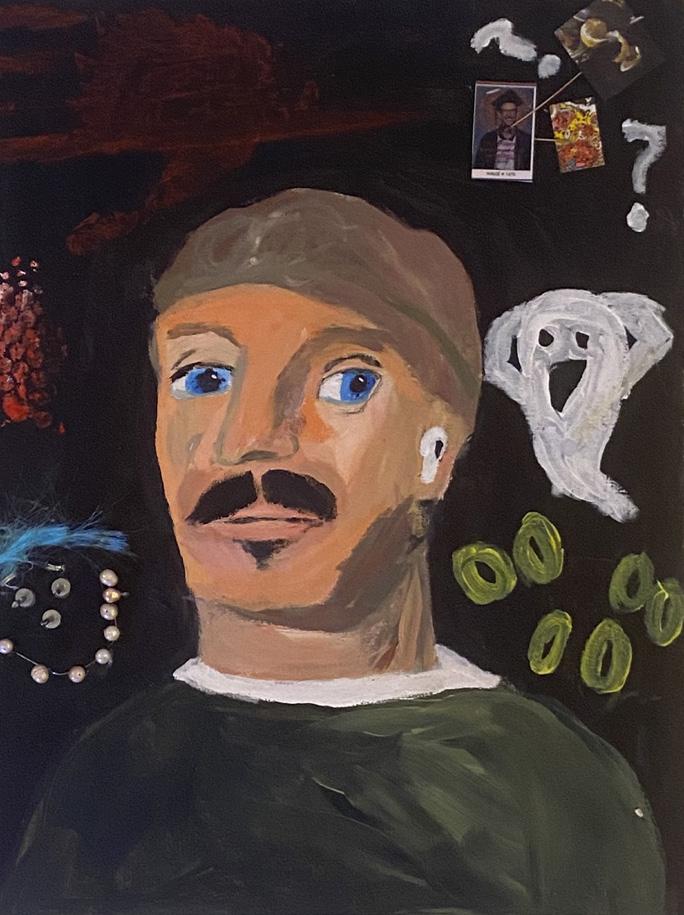
4 minute read
A Q&A WITH JAMMIE PATTON
Jammie Patton is a storyteller based in Brooklyn, NY. Her credits include directing, acting, writing, and producing across theatre, film, and television. She most recently directed The Niceties by Eleanor Burgess at Shadowland Stages in Ellenville, NY.
GrassRoots: You’re a storyteller who does it all. When did you realize directing was a part of your artistry?
Advertisement
Jammie Patton: I started directing skits and variety shows in my grandmother’s living room at the age of seven, encouraging my little cousins to play all the lead parts, while always giving myself a supporting role or cameo. (Shout out to cousins JaRon, Jeffrey and Ayanna for indulging me and my wackiness.) Dianna Ross and the Supremes, Michael Jackson, Whitney Houston and Saturday Night Live were my original inspirations for these eclectic living room presentations. We would perform for family gatherings or just for Grandma Juanita alone. Grandma would laugh so hard that she cried. It was a good time! I just didn’t realize that I was “directing” or even writing and producing. I was simply having fun with my cousins and making my grandma smile.
It wasn’t until high school– while attending a magnet program for theater in Atlanta– that my drama teacher, Mr. DeBeck, truly spotted and encouraged the director in me. He was teaching us about theaterin-the-round and we were assigned groups to put on a scene in this format. I ended up writing a farcical scene called “The Last Twinkie on Earth.” My group of five sophomore actresses performed the scene with precision gusto. I even made sure we had lighting and sound effects. It was exhilarating!
Mr. DeBeck later that year asked me to direct the mainstage production of Steel Magnolias. This had never happened in the history of the magnet program, where a student– let alone a sophomore– had directed a mainstage production. I was flabbergasted while some upperclassmen were very upset. I didn’t care. This was a chance to be back in Grandma Juanita’s living room, having fun and creating. I accepted and immediately fell in love with directing. I knew it was a part of my calling and began to dream about a career in front of and behind the scenes.
GR: When directing and acting opportunities come your way, what qualities in a story will make you think, “Yes, I want to work on this.”?
JP: For me, it’s about feeling. How does this script make me feel after reading it the first time? If I don’t feel anything then I know it’s not for me. The genre and roles can vary but I’m attracted to stories that make me feel inspired, hopeful, encouraged, seen. I’m interested in helping to lift the vibration and awareness of my fellow humans as well as myself, whether it’s through comedy or political drama. That is my charge as a storyteller.
GR: Is there a type of project or story that you hope you can work on soon, or generate soon?
JP: I need a juicy love story in my life! Something raw that just tears you apart and puts you back together again. You know what I mean? something that makes people want to fall in love. I’m talking about that Love Jones type of romance. Billie D. Williams and Dianna Ross in Mahogany type of story. I want The Notebook but with Black people. So many of our Black American stories are about “being Black” and the trials of racism while displaying our existence through a White American prism. And yes, these stories are true and necessary but I want to see Black people being sexy and in love and everything that comes with it.
GR: What are your writerly obsessions? Are there themes or aesthetics you find yourself coming back to again and again?
JP: Although I adore romantic comedies (Pretty Woman is one of my favorite movies of all time) I usually end up writing some social-political commentary on chauvinism and patriarchy in the United States. I’m striving for other paths though. I probably need more romance in my life. Maybe then I’ll write about it. ; )
GR: You directed The Niceties at Shadowland Stages, a play that looks at racism in academia. How did the predominantly white audience in Central New York impact your storytelling? Did you have any fears of how it would be received?
JP: No, I didn’t have any fears about how the play would be received. I have worked in Ellenville before and it seems like a fairly liberal and progressive place. The predominately white audience didn’t impact my story-telling at all. I believe the responsibility of the director is to convey the story the playwright has put forth in a way that resonates with truth regardless of the audience’s race, gender, age or socioeconomic status. It has to resonate truthfully to me as the director. How they receive it is how they receive it.
GR: At GrassRoots we combine theatre and cannabis. If you are comfortable with us asking: what role, if any, does cannabis play in your creative process or routine?
JP: I am extremely creative with or without cannabis. My imagination is on ten, twenty-four hours a day. Though I have found that a nice sativa can open me up to creative possibilities that I may not have thought about while not under the influence. While this is great and welcomed, it can be a doubleedged sword. Sometimes Miss Mary-Jane can have you out in left field and eventually on a yellow brick road, when your only goal is to come up with a name for your lead character. I’ve been there. Partake responsibly, friends.










